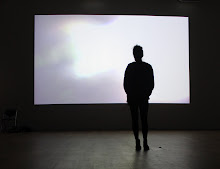
On Saturday I attended the worlds first women's climbing symposium. The day was incredible. It consisted of numerous technique workshops lead by elite coaches from all across the world including the current british number one. There were fascinating lectures and discussions that addressed what it means to be a female involved in a very male dominated sport.
The most interesting of the talks was led by Vicki cassell, sports phycologist and lecturer at Bangor university which addressed self limiting behaviors and the work of phycologist Albert Bandura.
There are many factors that limit ones ability to achieve which either fall in to the the category of physical factors i.e. lack of physical strength or phycological factors.
The Role of Self-Efficacy
Virtually all people can identify goals they want to accomplish, things they would like to change, and things they would like to achieve. However, most people also realise that putting these plans into action is not quite so simple. Bandura and others have found that an individual’s self-efficacy plays a major role in how goals, tasks, and challenges are approached.
People with a strong sense of self-efficacy:
- View challenging problems as tasks to be mastered.
- Develop deeper interest in the activities in which they participate.
- Form a stronger sense of commitment to their interests and activities.
- Recover quickly from setbacks and disappointments.
People with a weak sense of self-efficacy:
- Avoid challenging tasks.
- Believe that difficult tasks and situations are beyond their capabilities.
- Focus on personal failings and negative outcomes.
- Quickly lose confidence in personal abilities (Bandura, 1994).
Sources of Self-Efficacy
1. Mastery Experiences"The most effective way of developing a strong sense of efficacy is through mastery experiences," Bandura explained (1994). Performing a task successfully strengthens our sense of self-efficacy. However, failing to adequately deal with a task or challenge can undermine and weaken self-efficacy.
2. Vicarious experience
Witnessing other people successfully completing a task is another important source of self-efficacy. According to Bandura, “Seeing people similar to oneself succeed by sustained effort raises observers' beliefs that they too possess the capabilities master comparable activities to succeed” (1994).
3. Social Persuasion
Bandura also asserted that people could be persuaded to belief that they have the skills and capabilities to succeed. Consider a time when someone said something positive and encouraging that helped you achieve a goal. Getting verbal encouragement from others helps people overcome self-doubt and instead focus on giving their best effort to the task at hand.
4. Psychological Responses
Our own responses and emotional reactions to situations also play an important role in self-efficacy. Moods, emotional states, physical reactions, and stress levels can all impact how a person feels about their personal abilities in a particular situation. A person who becomes extremely nervous before speaking in public may develop a weak sense of self-efficacy in these situations. However, Bandura also notes "it is not the sheer intensity of emotional and physical reactions that is important but rather how they are perceived and interpreted" (1994). By learning how to minimize stress and elevate mood when facing difficult or challenging tasks, people can improve their sense of self-efficacy.
Through out the day these sources were put to the test through various social experiments. the first experiment that we encountered addressed vicarious experience.
A situation was set up that involved a well known elite climber attempting to complete a route repetitively, at the same point during each attempt she fell off. As she tackled the route an audience formed around her observing the forced failure. The majority of people knowing how competent a climber she is simply dismissed the route with the attitude that if Lucy Creamer couldn't complete the route then neither could they. Those who reluctantly attempted the route reached the same point as Lucy then jumped off believing that the last move was unachievable without attempting it. After the session had finished we were told that the experiment had been set up and that the climb was in fact a ridiculously easy grade. Proving that because people couldn't relate their own climbing ability to Lucy's they questioned their own ability.


No comments:
Post a Comment